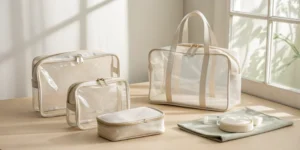
Our Academy
Jacky Zhou
June 12, 2025
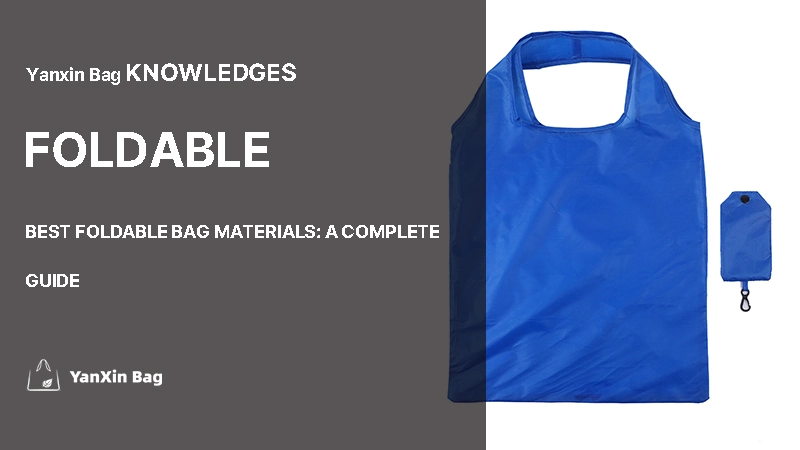
Fabrics on the market might look quite similar—polyester, nylon, cotton, canvas, Tyvek… But each material varies greatly in weight, feel, load-bearing capacity, and eco-friendliness. If you’re a brand or a buyer, choosing the wrong material not only affects the user experience but can also lead to wasted costs.
What Are the Best Materials for Foldable Bags? Polyester, nylon, cotton, canvas, Oxford fabric, ripstop fabric, Tyvek, non-woven fabric, laminated non-woven fabric, and cotton mesh bags are common materials for foldable bags. They each have their pros and cons in terms of durability, weight, eco-friendliness, and cost, making them suitable for different uses.
Although we’ve listed common foldable bag materials above, it’s still worth learning more about how different materials perform in actual use, what situations they’re best for, and what often-overlooked differences they have. Keep reading as we introduce the features of each material one by one, helping you make a more suitable choice based on your actual needs.
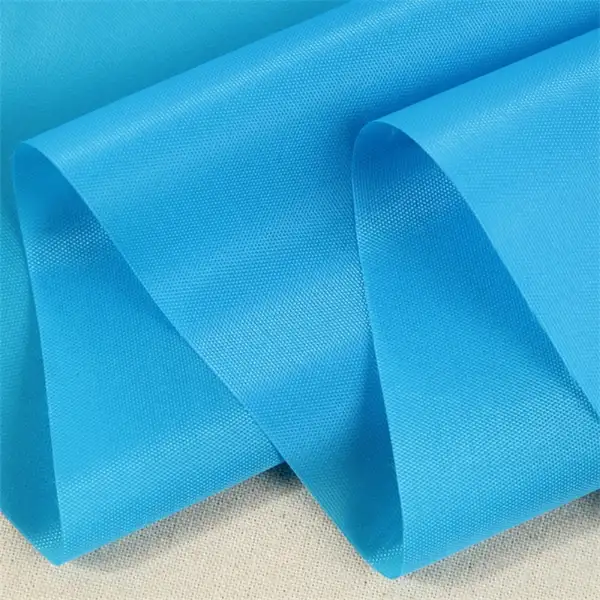
Polyester is one of the most commonly used materials for foldable bags, popular for being lightweight, durable, and moderately priced. It has some water-repellent properties, can handle light rain or spills, and is wrinkle-resistant, making it easy to fold and carry repeatedly. Polyester is easy to print patterns on, suitable for custom branding and promotional giveaway bags. Its downsides are weaker breathability and lower eco-friendliness compared to natural materials. However, overall, it’s a preferred choice that balances practicality and cost-effectiveness.
Nylon is another common material for foldable bags. Compared to polyester, it feels softer and has greater toughness. It doesn’t easily wear out or tear with daily folding and repeated use, making it very suitable for travel bags and personal backpacks that need to be “durable yet lightweight.” While not as stiff as polyester, it excels in comfort, tear resistance1, and has some water-repellent capability2. Nylon bags generally have a simple and practical style, suitable for users who value texture and lifespan, like commuters and frequent travelers.
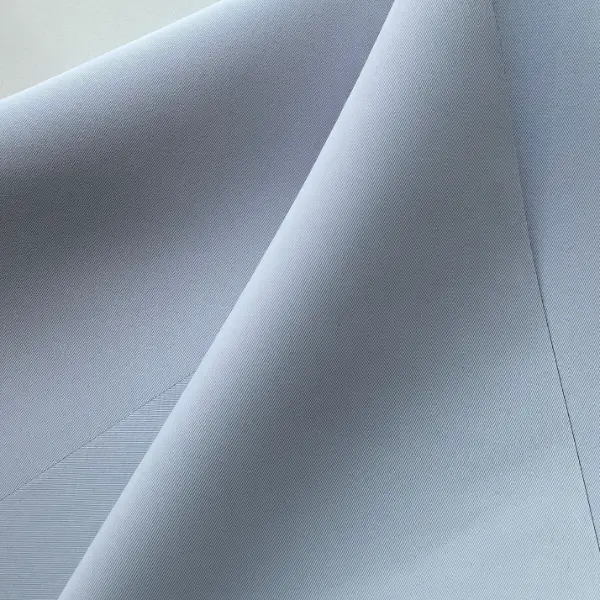
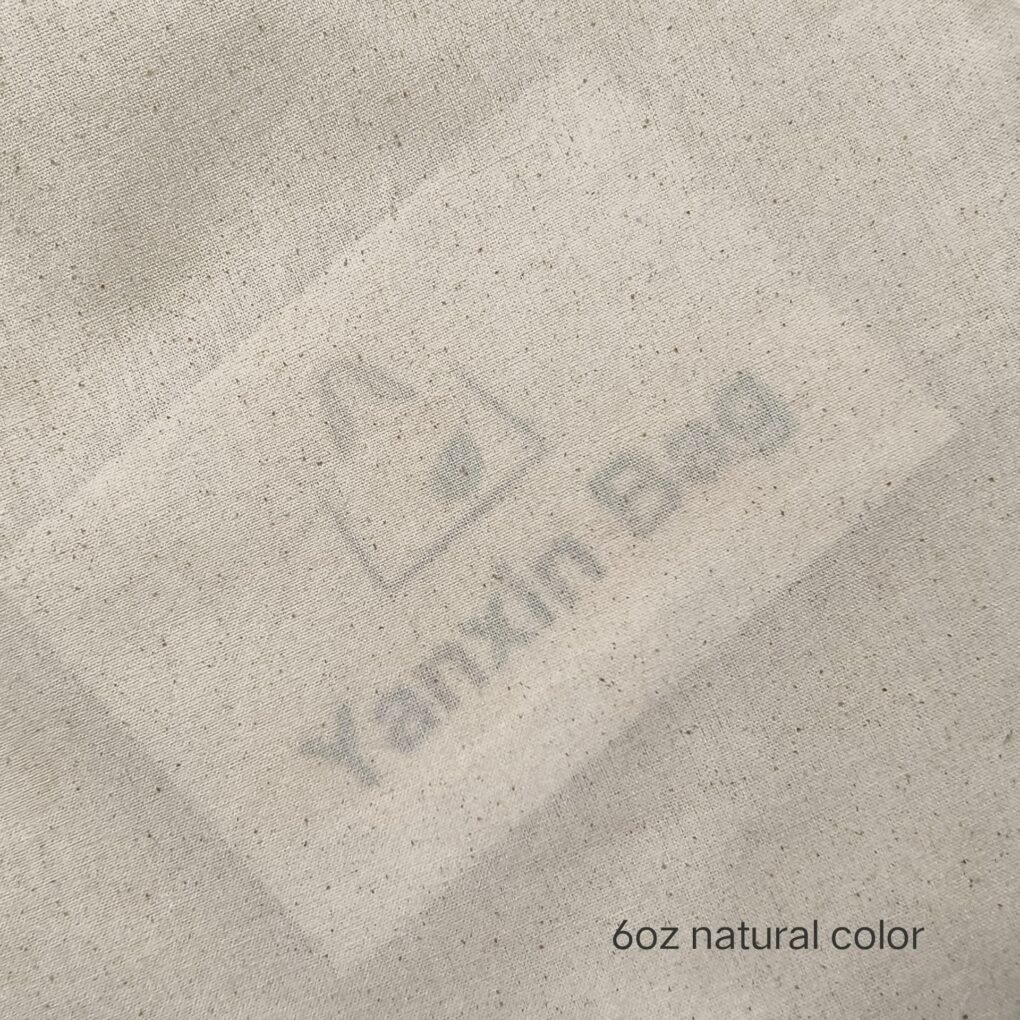
Cotton is one of the most natural-feeling materials for foldable bags. It’s eco-friendly, biodegradable, soft in texture, and has a warm, close-to-life feel. Although not as waterproof or durable as polyester and nylon, it excels in breathability and skin-friendliness, suitable for daily shopping, outings, and carrying items for short trips. Cotton bags are often used for eco-themed or cultural and creative products, offering a comfortable feel and a simple appearance, giving an impression of being natural and textured.
Canvas is also a natural material based on cotton, but it’s thicker, more durable, and has a more structured form than regular cotton. It can bear significant weight, making it suitable for sturdy and durable foldable bags3 like commuter bags, student bags, and reusable shopping bags4 for daily use. Although it might be a bit bulkier when folded, it generally looks more stylish, with a tendency towards an artistic or retro style. The only thing to note is that it’s not waterproof and not very suitable for humid environments.
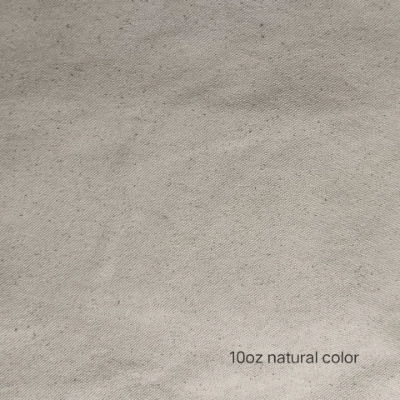
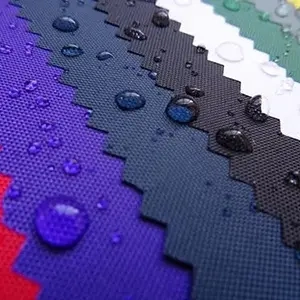
Oxford fabric is a material that combines practicality and durability. In foldable bags, it’s often used for styles that require strong load-bearing capacity and a certain sense of structure. Its weave is dense, the surface has a slight texture, it feels rather stiff, and it has some water-repellent and stain-resistant properties. Compared to polyester and nylon, Oxford fabric is a bit thicker and slightly bulkier when folded, but it’s more suitable for products with clear purposes like short-trip travel bags, foldable backpacks, and tool bags.
Ripstop fabric, also known as anti-tear fabric, is a lightweight material where reinforcing yarns are woven into the fabric, forming a grid-like structure. Don’t let its thinness fool you; it’s actually very durable. Even if scratched, it doesn’t tear easily, and it’s often used in outdoor gear for activities like mountaineering and camping.
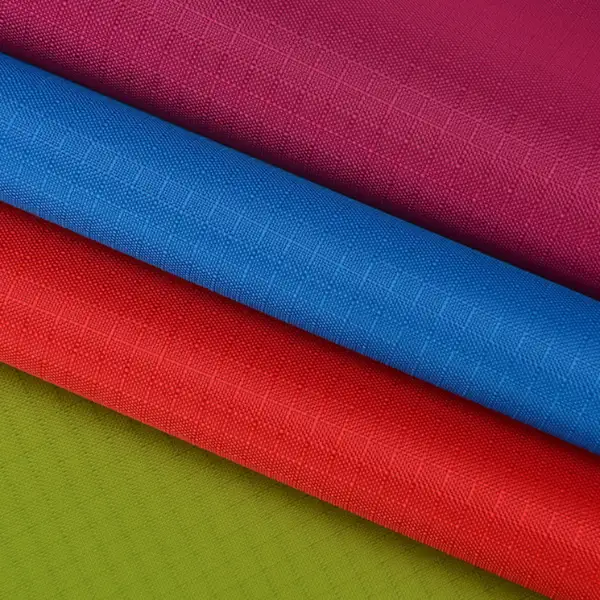
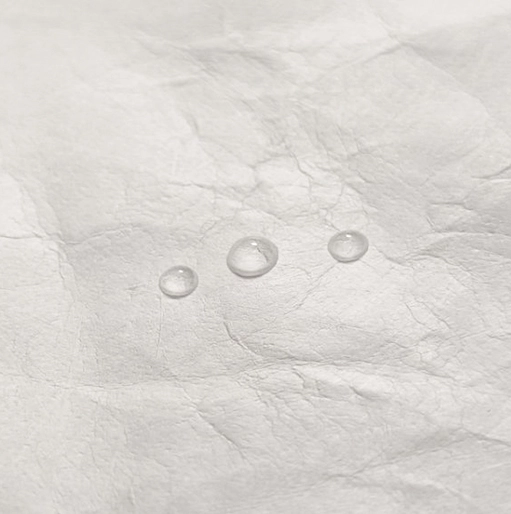
Tyvek is a high-density polyethylene material developed by the American company DuPont. It looks like paper but is actually very tear-resistant, lightweight, and has waterproof yet breathable properties. It contains no toxic substances and is recyclable, making it an innovative material that has gained much attention in the eco-bag field in recent years. Tyvek folds well, doesn’t show creases easily, has a unique style, and is often used for design-focused brand bags, art exhibition bags, and fashion collaboration items.
Non-woven fabric is a material made from polypropylene fibers pressed together at high temperatures, without traditional weaving processes. It’s lightweight, low-cost, and widely used in eco-friendly bags, promotional bags, and trade show giveaway bags. Although not very heavy-duty and prone to wear, its advantages are easy printing, rich color options, and quick production cycles, making it an ideal material for brand promotion and event giveaways.


Laminated non-woven fabric is made by adding a thin film (usually glossy or matte) to the surface of regular non-woven fabric. This enhances its waterproof, stain-resistant, and tensile strength properties, while also making printed patterns clearer and colors more vibrant. This material retains the lightweight nature and low cost of non-woven fabric but has a more refined and durable appearance. Therefore, it’s often used for supermarket eco-bags, brand promotional bags, and high-end event gift bags. The downsides are a slightly stiff feel, and the laminated surface can easily crease after folding. Overall, it’s more suitable for situations where visual appeal and a certain number of reuses are desired.
Different foldable bag materials have their own characteristics. When choosing, you can decide based on your actual use, budget, environmental needs, and appearance preferences. If you prioritize lightweightness, consider polyester or nylon. If you want texture or eco-friendliness, you can choose cotton, canvas, or Tyvek. If it’s for event giveaways or brand promotion, cost-effective non-woven fabric would be more suitable.
| Material | Texture & Feel | Water Resistance | Durability | Foldability | Printability | Eco-Friendly | Best For |
|---|---|---|---|---|---|---|---|
| Polyester | Lightweight, crisp | Moderate | Moderate | Good | Good | No | Daily shopping, promotional bags |
| Nylon | Soft, flexible | Moderate | High | Excellent | Fair | No | Travel pouches, outdoor use |
| Cotton | Soft, breathable | Low | Fair | Moderate | Fair | Yes | Eco bags, lifestyle totes |
| Canvas | Thick, structured | Low | High | Fair | Good | Yes | Commuter bags, student bags |
| Oxford Fabric | Durable, stain-resistant | Moderate | High | Fair | Fair | No | Foldable backpacks, utility bags |
| Ripstop Fabric | Thin, tear-resistant | Moderate | High | Excellent | Fair | No | Outdoor bags, minimalist designs |
| Tyvek | Paper-like, stylish | Moderate | Fair | Good | Fair | Yes | Trendy designs, branded eco packaging |
| Non-woven Fabric | Lightweight, cost-effective | Low | Fair | Good | Good | Semi | Trade shows, giveaways |
| Laminated Non-woven | Glossy, water-resistant | High | Moderate | Fair | Excellent | No | Branded gift bags, reusable promo totes |
| Cotton Mesh | Breathable, stretchy | Low | Fair | Good | Fair | Yes | Grocery bags, farmers markets, eco lifestyle |
By understanding the common foldable bag materials on the market, we can see that each fabric differs in weight, durability, eco-friendliness, and appearance/texture. Whether you’re looking to promote your brand, for daily sales, or hope to create a more eco-conscious reusable bag, choosing the right material is the first step to success.
Yanxin Bag is a professional foldable bag manufacturer. We specialize in the production and design of various custom foldable bags, with materials covering mainstream options like polyester, nylon, cotton, non-woven fabric, Tyvek, and more. We support various printing processes and structural style customizations. Whether you need shopping bags, giveaway bags, or brand promotional bags, we can tailor solutions for you.
Feel free to contact Yanxin Bag foldable bag factory to get free samples and professional customization advice, helping your brand achieve effective promotion and environmental value!
1 Understanding tear resistance can help you choose bags that withstand daily use, ensuring your belongings stay safe during travels.
2 Learn why water-repellent features are essential for travel bags, protecting your items from unexpected weather conditions.
3 Explore this link to discover top-rated durable foldable bags that combine style and functionality for everyday needs.
4 Check out this resource to find the best reusable shopping bags that are eco-friendly and stylish for your shopping needs.
Note: Tyvek® and DuPont™ are trademarks or registered trademarks of Dupont or affiliated companies of DuPont.
Q1: What are the most common materials used in foldable bags?
Answer: The most common materials for foldable bags include polyester, nylon, cotton, canvas, Oxford fabric, ripstop fabric, Tyvek, non-woven fabric, laminated non-woven fabric, and cotton mesh. Each offers unique advantages in durability, eco-friendliness, foldability, and cost.
Q2: Is polyester a good material for a foldable shopping bag?
Answer: Yes, polyester is lightweight, water-resistant, and durable, making it a popular material for foldable shopping bags. It is also cost-effective and offers excellent printability for custom foldable bag designs.
Q3: Are cotton mesh bags eco-friendly?
Answer: Yes, cotton mesh bags are made from natural cotton fibers, making them biodegradable and reusable. They are ideal for eco-conscious shoppers looking for breathable, washable, and sustainable foldable bag options.
Q4: Which foldable bag material is most water-resistant?
Answer: Among foldable bag materials, laminated non-woven fabric and Tyvek are the most water-resistant. Laminated non-woven bags have a protective film layer, while Tyvek offers natural water resistance due to its dense fiber structure.
Q5: Can I print my logo on a Tyvek foldable bag?
Answer: Yes, Tyvek bags can be customized with logos and branding. Though the surface is different from traditional fabrics, it supports various printing techniques, making it a great option for stylish, branded foldable bags.
Q6: Are laminated non-woven foldable bags durable for daily use?
Answer: Laminated non-woven bags are moderately durable. The lamination improves water resistance and enhances the appearance, but heavy loads or sharp items may wear the bag faster than polyester or canvas alternatives.
Q7: What type of foldable bag is best for travel?
Answer: Lightweight nylon or ripstop fabric foldable bags are ideal for travel. They offer excellent durability, tear resistance, and pack down into small sizes, making them perfect for luggage backup, souvenirs, or grocery runs.
Q8: How do I choose the right material for a custom foldable bag?
Answer: Choosing the right foldable bag material depends on your intended use, budget, and branding needs. Polyester is versatile and affordable, cotton is eco-friendly, Tyvek is modern and water-resistant, while non-woven is great for mass promotions.
Q9: Where can I find a reliable foldable bag manufacturer in China?
Answer: Yanxin Bag is a trusted foldable bag manufacturer in China, offering a wide range of custom foldable bags made from polyester, nylon, non-woven fabric, and more. They provide OEM/ODM services, logo printing, and professional material guidance.

Order or no-order we are Always here to help you!
We will contact you within 1 working day, please pay attention to the email with the suffix “@yanxinbag.com”.
Order or no-order we are Always here to help you!
We will contact you within 1 working day, please pay attention to the email with the suffix “@yanxinbag.com”.